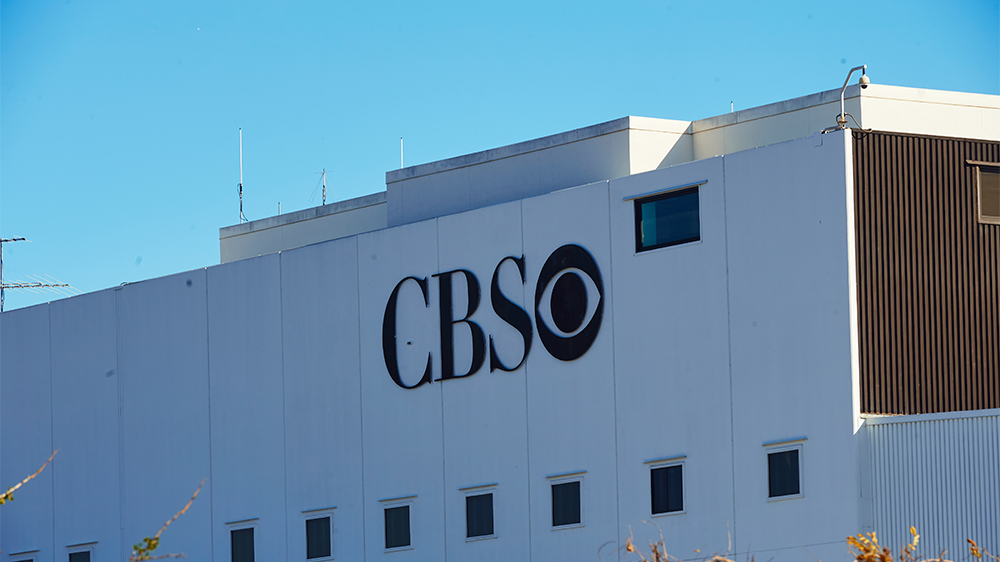Pope Francis' Legacy: A More Global, Yet Divided Church

Table of Contents
A Globalized Papal Presence
Pope Francis' papacy has been characterized by a relentless focus on extending the Church's influence and compassion to the world's most vulnerable populations. This globalized approach to Catholicism is evident in several key areas.
Increased Outreach to the Periphery
Francis has consistently prioritized the marginalized communities often overlooked by traditional Church structures. His emphasis on social justice issues resonates powerfully with those struggling with poverty, inequality, and oppression.
- Papal Visits: His trips to conflict zones like Iraq and South Sudan, along with his visits to impoverished nations in Africa and Latin America, highlight a commitment to bringing the message of hope and solidarity directly to those most in need.
- Laudato Si': His encyclical on the environment, Laudato Si', has galvanized global conversations on climate change and ecological justice, influencing policy discussions and inspiring grassroots movements worldwide.
- Focus on Migrants and Refugees: Francis has consistently championed the rights and dignity of migrants and refugees, calling for greater compassion and welcoming from the international community and Catholic institutions alike.
These actions demonstrate a commitment to global Catholicism that moves beyond traditional power structures and engages directly with the realities faced by the world's poorest and most vulnerable. This outreach to the periphery is a defining characteristic of Pope Francis' legacy.
Emphasis on Interfaith Dialogue
Pope Francis has made fostering dialogue and understanding between different faiths a cornerstone of his papacy. His belief in the importance of religious tolerance and cooperation is reflected in numerous initiatives promoting interfaith harmony.
- Meetings with Religious Leaders: He has engaged in numerous high-profile meetings with leaders from various faiths, including Islam, Judaism, and Buddhism, building bridges and fostering mutual respect.
- Document on Human Fraternity: The "Document on Human Fraternity for World Peace and Living Together," signed jointly with the Grand Imam of Al-Azhar, is a landmark achievement in interfaith cooperation, advocating for peaceful coexistence and mutual understanding.
- Promotion of Ecumenism: Francis has actively pursued closer relationships with other Christian denominations, seeking unity and collaboration among various branches of Christianity.
These efforts to cultivate interfaith dialogue and promote ecumenism contribute significantly to Pope Francis' legacy, painting a picture of a global Church actively seeking common ground and building bridges across religious divides.
Modernized Communication
Pope Francis has effectively utilized modern communication tools to connect with a global audience, breaking down traditional barriers and making the message of the Church more accessible than ever before.
- Social Media Engagement: His active presence on social media platforms like Twitter has allowed him to directly communicate with millions around the world, bypassing traditional media filters and fostering a sense of immediacy and personal connection.
- Simple and Accessible Language: He favors a clear and straightforward communication style, avoiding overly complex theological jargon, making his messages more relatable to a wider audience, regardless of their level of religious knowledge.
- Papal Pronouncements: His encyclicals and apostolic exhortations are notable for their accessibility and engagement with contemporary social issues, fostering wider discussions within and beyond the Church.
This modernized approach to communication has been instrumental in expanding the reach of the Church's message and enhancing its global influence.
Deepening Divisions within the Church
Despite the global reach of his papacy, Pope Francis' leadership has also exacerbated pre-existing divisions within the Catholic Church. Several key areas have fueled significant internal conflict and dissent.
Theological Debates
Pope Francis' views on certain doctrines, particularly concerning the understanding of mercy and the application of Church law, have stirred significant controversy within more conservative factions of the Church.
- Amoris Laetitia: His apostolic exhortation on the family, Amoris Laetitia, sparked heated debates regarding the reception of divorced and remarried Catholics into the sacraments, leading to open dissent from some prominent theologians and bishops.
- Synodality: His emphasis on synodality and the importance of consultation within the Church has been interpreted differently, with some viewing it as a weakening of central authority.
- Liturgical Reforms: Discussions surrounding liturgical reforms and the celebration of the Mass have also created divisions among traditionalists and those advocating for greater inclusivity.
These theological debates highlight the complex interplay between tradition and reform within the Church, a tension that has been intensified during Pope Francis' papacy.
Social and Moral Issues
Pope Francis' stances on social and moral issues, particularly concerning LGBTQ+ rights, divorce, and remarriage, have generated significant divisions within the Church.
- LGBTQ+ Rights: His statements on the importance of accompanying and welcoming LGBTQ+ individuals, while not changing Church doctrine, have been interpreted differently, causing friction with those holding more traditional views.
- Divorce and Remarriage: Amoris Laetitia's nuanced approach to the situation of divorced and remarried Catholics has ignited significant debate and challenged traditional interpretations of Church teaching.
- Social Justice Advocacy: His strong emphasis on social justice and addressing economic inequality has also been viewed with suspicion by some who prefer a more strictly religious focus.
These social and moral issues remain highly contentious within the Catholic Church, and Pope Francis' pronouncements on these topics have contributed to an already complex and often heated discourse.
Clerical Abuse Crisis
The handling of the clerical abuse crisis during Pope Francis' papacy has been a source of profound division and a significant challenge to the Church’s credibility.
- Accountability and Transparency: Critics argue that the response to the crisis has been insufficient, lacking both accountability for perpetrators and transparency in addressing systemic issues.
- Lack of Confidence: The crisis has eroded trust in Church leadership and caused deep wounds among victims and their families.
- Calls for Reform: The crisis has also ignited calls for significant structural reforms within the Church to prevent future abuse and ensure better protection for vulnerable individuals.
The clerical abuse crisis represents a significant challenge to Pope Francis' legacy, demanding continued efforts toward accountability, healing, and structural reforms within the Church.
Assessing Pope Francis' Enduring Legacy
In conclusion, Pope Francis' legacy is a multifaceted and complex tapestry woven from threads of global outreach and internal division. His efforts to extend the Church's compassion and engagement to the world's periphery have been remarkable, shaping a more globally-minded Catholicism. Yet, simultaneously, his papacy has exacerbated pre-existing theological and social divisions within the Church, demanding continued reflection and dialogue. The long-term implications of both these facets of his legacy will continue to shape the Catholic Church for years to come.
To fully understand Pope Francis’ legacy, we must engage in critical analysis of his actions and their impact on the global Church. Analyzing Pope Francis' impact requires sustained scholarly discussion, careful consideration of diverse perspectives, and a commitment to fostering a more just and inclusive Church. Let us continue debating the future of Pope Francis' legacy and its implications for the Church's future.

Featured Posts
-
 60 Minutes Producers Resignation Loss Of Independence Cited
Apr 24, 2025
60 Minutes Producers Resignation Loss Of Independence Cited
Apr 24, 2025 -
 Kako Izgleda Ella Travolta Danas
Apr 24, 2025
Kako Izgleda Ella Travolta Danas
Apr 24, 2025 -
 Hisd Mariachi Headed To Uil State Competition After Viral Whataburger Video
Apr 24, 2025
Hisd Mariachi Headed To Uil State Competition After Viral Whataburger Video
Apr 24, 2025 -
 The Bold And The Beautiful Thursday April 3 Recap Liams Collapse And Hopes New Living Situation
Apr 24, 2025
The Bold And The Beautiful Thursday April 3 Recap Liams Collapse And Hopes New Living Situation
Apr 24, 2025 -
 Ted Lassos Revival Brett Goldsteins Thought Dead Cat Analogy
Apr 24, 2025
Ted Lassos Revival Brett Goldsteins Thought Dead Cat Analogy
Apr 24, 2025
